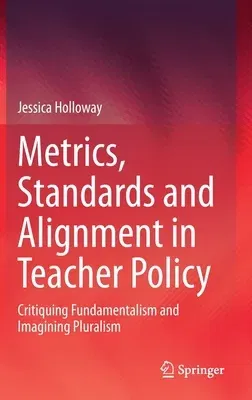Jessica Holloway
(Author)Metrics, Standards and Alignment in Teacher Policy: Critiquing Fundamentalism and Imagining Pluralism (2021)Hardcover - 2021, 8 January 2021

Qty
1
Turbo
Ships in 2 - 3 days
In Stock
Free Delivery
Cash on Delivery
15 Days
Free Returns
Secure Checkout

Print Length
168 pages
Language
English
Publisher
Springer
Date Published
8 Jan 2021
ISBN-10
9813348135
ISBN-13
9789813348134
Description
Product Details
Author:
Book Edition:
2021
Book Format:
Hardcover
Country of Origin:
NL
Date Published:
8 January 2021
Dimensions:
23.39 x
15.6 x
1.12 cm
ISBN-10:
9813348135
ISBN-13:
9789813348134
Language:
English
Location:
Singapore
Pages:
168
Publisher:
Weight:
430.91 gm